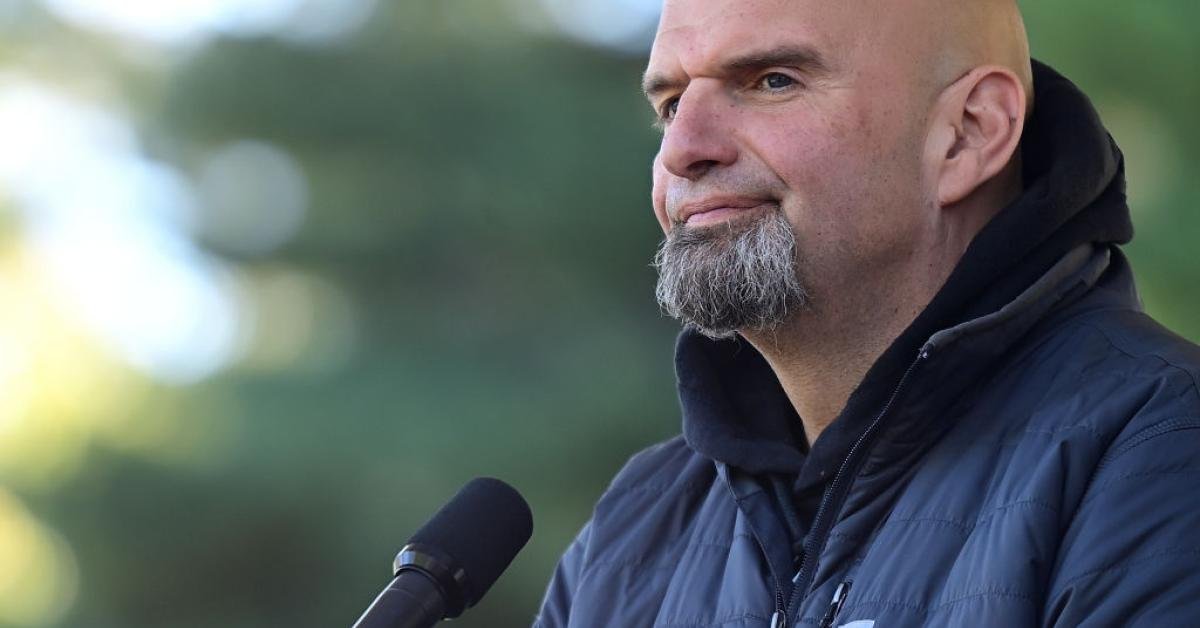
(The Center Square) – U.S. Senators John Fetterman and Dave McCormick continue to build upon their reputation of bipartisan congeniality, particularly expressed in shared views about the state of antisemitism in the United States.
The pair sent letters to the presidents of five of the commonwealth’s most prestigious universities “expressing concern about the rise of antisemitism on college campuses.”
The schools – Penn State, Temple University, University of Pittsburgh, University of Pennsylvania, and Lehigh University – were notable to the senators for having the highest populations of Jewish students in the state.
“We write to urge you, as a leader of a Pennsylvania university with a large Jewish student population, to commit to ensuring Jewish institutions on your campus are equipped to protect the students they serve, including by allocating the resources to do so,” read the letters.
The pair cite Hillel International, a Jewish organization on school campuses, as having documented record-high incidents of antisemitism. Hillel notes that assaults are down from last year while online harassment has surged.
The Council for American-Islamic Relations has also reported an increase in anti-Muslim and anti-Arab incidents, with numbers reaching their highest level since the group began tracking in 1996.
“Most disturbingly, Jewish students are once again hiding their Judaism,” read the letters. “It is incumbent on all of us – especially our nation’s universities – to ensure vibrant Jewish life is not compromised or driven into the shadows.”
The call reflects a deep concern among the global Jewish diaspora who have seen heightened tensions around Israel serve as justification for acts of violence toward individual Jewish people. While some, like the Anti-Defamation League, say that anti-zionism is tantamount to antisemitism, others worry that there’s danger in conflating a nation state with an entire ethnicity, danger that has led to deadly attacks in Washington, D.C. and Boulder, Colo., as well as an arson attack on the Pennsylvania Governor’s mansion.
Included in the letter’s list of antisemitic acts were “illegal encampments,” which arose at schools like Penn and Pitt in protest of Israel’s actions in Gaza. Despite increasing international criticism of the nation’s prosecution of its war against Hamas, the lines between political objection and ethnic hatred remain blurry in public perception.
Fetterman himself has become alienated from much of his progressive base because of his approach toward supporters of Palestine. He referred to the encampments as “pup tents for Hamas,” even as significant numbers of Jewish students spoke out against the war through organizations like Jewish Voices for Peace.
Critics say that when opposition to Israel is equated to antisemitism, it makes it harder to root out very real incidents of harassment, violence, and vandalism directed at Jewish people. Such incidents have been on the rise as an emboldened faction of white supremacists mount explicit attacks on Jews and other minority groups.
In May, the Squirrel Hill neighborhood in Pittsburgh, which endured the tragic 2018 mass shooting by a radical, rightwing terrorist at Tree of Life Synagogue, was papered with antisemitic flyers. The perpetrator, Jeremy Brokaw, was fined nearly $50,000 for littering the papers, which were reportedly created by the far-right hate group Goyim Defense League.
Cities including Harrisburg have also seen brazen displays of masked men marching through their streets with Nazi flags. One incident of antisemitic speech from X chatbot Grok led to mass condemnation but also drew out slews of neo-Nazi commenters with statements like “We’re back!”
Both within and beyond campus walls, administrators are facing a hostile environment for Jewish and Muslim students along with any number of other vulnerable groups. Ultimately, heeding the senators’ calls to create a more secure physical space may prove far easier than curbing the hateful online attacks counted by groups like Hillel and CAIR or demonstrated on massive public platforms.
“No student should feel like they must risk their safety to exercise their First Amendment rights to peacefully assemble and freely practice their religion,” wrote Fetterman and McCormick. ”Before the school year begins this fall, we encourage you all to work with your campus’s Jewish institutions and ensure all students, regardless of their race, ethnicity, or shared ancestry are safe and able to fully participate in campus life.”




